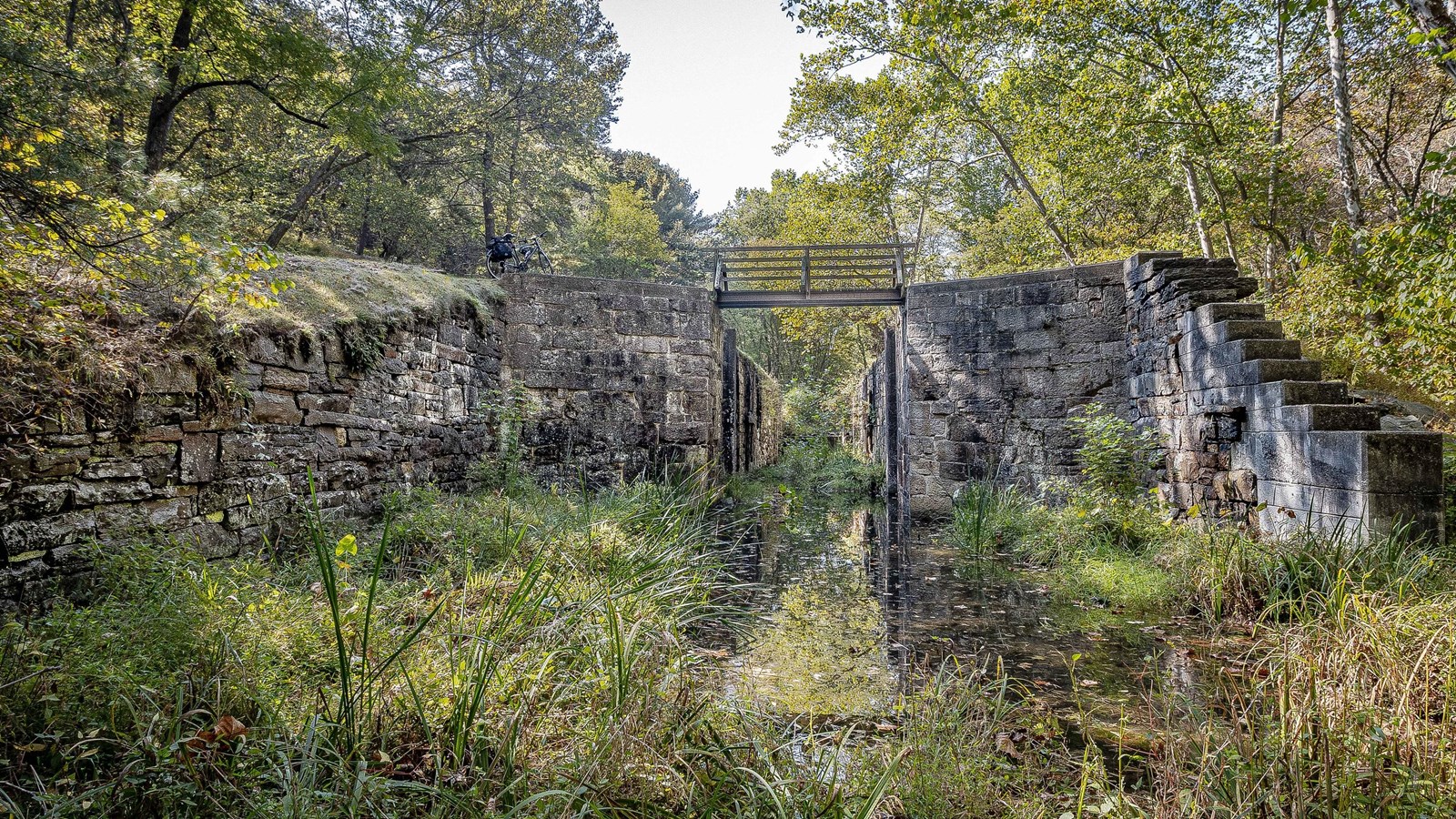Last updated: October 10, 2024
Place
C&O Canal Lock 64

Paul Graunke
Quick Facts
Amenities
1 listed
Scenic View/Photo Spot
Along the 184.5 miles of the canal are 74 lift locks. These locks were put into place to help boats overcome the 605-foot elevation change between Georgetown and Cumberland. The C&O Canal is like a staircase, canal boats traveled along the flat sections and used the locks to take a “step up or down” about eight feet. The locks typically had hand-operated miter gates that were simple and followed Leonardo da Vinci’s original 1485 design. Entering the lock was the most demanding part of canalling.
Lock 64 2/3 is the 7th of the 13 locks that was constructed as a “composite lock”, or a lock made with more than one material. It is made of kyanized (treated) wood and uncut stone but was repaired with concrete in 1919. On the towpath side of the lock are remnants of a snubbing post. On the other side of the lock is a bypass flume that allowed water to bypass the lock to water the level below.
The odd numbering of this lock is a result of Lock 65 never being built. The Canal Company eliminated Lock 65 to reduce costs and used the fractions as documentation of the gap in the lift lock numbering system, while still allowing the upstream lock numbers to remain. Locks 62, 63 1/3, 64 2/3, and 66 have a 10’ lift to make up for the elimination.
Remnants of a lockhouse sits about 10’ above the towpath on a small plateau.
Lock 64 2/3 is the 7th of the 13 locks that was constructed as a “composite lock”, or a lock made with more than one material. It is made of kyanized (treated) wood and uncut stone but was repaired with concrete in 1919. On the towpath side of the lock are remnants of a snubbing post. On the other side of the lock is a bypass flume that allowed water to bypass the lock to water the level below.
The odd numbering of this lock is a result of Lock 65 never being built. The Canal Company eliminated Lock 65 to reduce costs and used the fractions as documentation of the gap in the lift lock numbering system, while still allowing the upstream lock numbers to remain. Locks 62, 63 1/3, 64 2/3, and 66 have a 10’ lift to make up for the elimination.
Remnants of a lockhouse sits about 10’ above the towpath on a small plateau.
